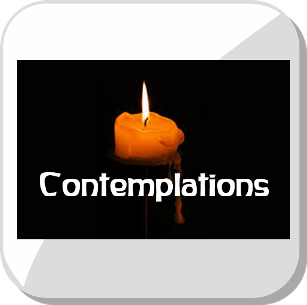|
Reported by John-Peter Gernaat The second talk on this topic was to introduce the changes in translation to the Creed and why they were necessary. The talk was presented on the first Sunday of the first period of Trinity of the year. The Trinity Epistle, which was heard in the Act of Consecration, is quite remarkable because it establishes a theology. A perspective on the Divine becomes apparent in this epistle. The epistle speaks to each aspect of the Trinity and at the end of the first line relating to each aspect of the Divine a word appears. The phrases in which this word appears are: “Conscious”; “In experiencing”; and “In grasping”. Each time the word “humanity” is spoken, and we begin to understand something about being human. We appreciate, in hearing this epistle, that we are in the process of becoming human. We can call ourselves a human being, but we have as yet not reached the fulfilment of the idea of humanity. We are still on a journey to reaching the ultimate goal of being human. We are in the process, not only of being human, but of becoming human. We can also gain a strong sense of this in our baptismal sacrament. In the Sacrament of Baptism we hear, addressed to the congregation the full three-folded human being expressed in the whole community: thinking, feeling and willing (and it the human willing, the willing of a human being, someone who is free). We hear that this soul (of the child that has been baptised) may be, grow and become in the Christ community. We are being, growing and becoming. We are in process. We have in the Trinity Epistle a wonderful building picture of what it is to be human. Whenever we encounter language we always encounter limitations. Certain languages have fewer limitations. English has a number of limitations because it is a very adoptive language. The history of English informs us of how it has adopted in its adaptation. There was an original language spoken on the island that we now refer to as England, Wales and Scotland. That was Celtic, probably similar to Cymraeg spoken in Wales today. The Danes invaded the island and brought Old Norse to England. The Romans invaded and the influences of Latin were brought to the island. Then the Angles and the Saxons invaded, who were north Germanic tribes and brought their language. The language spoken on the island became Anglo-Saxon with the Saxons dominating over the Angles so that the language was a Germanic dialect with influences of the Old Norse, elements of the original Celtic and influences of Latin. In 1066CE the island was invaded by a Viking who spoke what is known as middle-French, or Norman French because it was the French spoken in Normandy where William was the duke. After 1066 the people in control of the island spoke Norman French. We see this most clearly when we look at the names of bishops of the churches. We encounter Edward, Ethelred, Edgar as common names under the Angle-Saxons and then the names change to become Felix and Guy under the Normans. The influence of French entered the Angle-Saxon through vocabulary (not through the structure of the language). Words from the French were adopted and new words were developed. English has continued to be the most adoptive and adaptive language in the present day. English keeps incorporating words, unlike other languages which have language institutes that try to preserve the language and protect it from external influence. Every year a new set of words are added to the English dictionary, even though they have no connecting to the origins of English. As a consequence of English being such an adoptive language there are limitation to English. It also means that the meaning of words change and they acquire a meaning that they did not originally have. These words then become stumbling blocks, especially to the modern ear because we hear the word not in its denotation (its dictionary meaning) but rather in its connotation (how it is understood in everyday speech). One of the problems in English is the word ‘man’. The word has its origins from the Proto-Indo-European word ‘men’ that signified ‘mind’, ‘thinking’, ‘intelligence’ as we still find in the word ‘mental’. It was in the 11th century CE that the word ‘man’ in Germanic languages began to denote primarily the adult male. Originally the Germanic word for the male adult was ‘wer’ from the Latin ‘vir’ (‘Vir’ has the sense of adult male human being - Dictionary.com) (from which we derive virile). This word was completely replaced by ‘man’ by the end of the 13th century. We have lost the connection to ‘man’ representing all of humanity. Fortunately, the pronunciation of human (hjuːmən) does not contain the sound of the word ‘man’. Therefore, when we hear the word ‘human’ it is gender-neutral and applies equally to all genders and to every other way in which human beings express themselves. Therefore, when the word ‘man’ is heard in the Act of Consecration it becomes problematic for some people. They hear only a reference to a male person and not to all of humanity. This leaves the person with an uncomfortable feeling, and they are unable to appreciate what we are attempting to describe. This is something that we do not wish to have occur. We want it to be clear. We want to use words that make it clear what we are saying and does not make it difficult for others to grasp. Already in the United States and in Australia the sacrament is referred to as the Act of the Consecration of the Human Being. This makes it clear that it is an act of consecration for all human beings. It is an act of consecration of the Human Being, singular; in other words, of the ideal of the Human Being, the one we are becoming. In Southern Africa we will be making changes to the words of the Creed from the beginning of Passiontide to make it clearer what they mean. We are attaching these changes to the idea that we hear in the epistle at Trinity time: humanity! It is about our humanity. We have a clear innate understanding of what it means to be human. This becomes very clear for us when we witness acts that are so horrendous that we fail to see any humanity in these acts, we recognise that they are devoid of humanity. Our aim is for our Creed to reflect our humanity simply in ways that are not confusing, are not confused by the words used. There will be three word changes that everyone will become aware of in the Creed from Passiontide. The first, is one that may go almost unnoticed. It occurs in the fourth statement of the Creed:
The change that will come is the changing of ‘mankind’ to ‘humankind’:
In so doing we make it very clear. It is already a term that appears in a number of the inserted prayers that are prayed at the various seasons of the year. An example was read from the epistle we hear at St John’s Tide. The second change will occur in the last statements of the Creed:
The emphasis is on the continuation of the human being. The change reads:
The third change will occur in the third statement:
The meaning of this statement has always raised a question. When one reads the Gospels these books provide a theology, an understanding of the Divine. Some churches read and interpret the theology that because Christ entered a male human being, only male human beings may be priests. This theology is not the theology of The Christian Community. The Christian Community has always understood that the fundamental incarnation mystery is the incarnation into a human being, that gender was not an essential element in this mystery. The change will read:
This will help to clarify the essence of the incarnation. The Divine, through this incarnation, united the Divine with the whole human being, for all human beings. This becomes clear when the Holy Spirit is given. Tradition has it that those gathered in the Upper Room when the Spirit arrived were the Twelve and Mary. From the very beginning the Spirit was for all human Beings. After the Spirit is given in the Upper Room it is given to all who follow. We realise that it is the whole of humanity that is called into this relationship with Christ.
The aim is that people who hear the liturgy of The Christian Community can hear the true substance and not be distracted by a language that sounds as though it belongs to a hundred years ago. The language is always only a bridge to grasping the essence of something, which goes beyond language. We hope to understand the idea in its purest spiritual form. The language used should therefore not be distraction hindering this but should rather help to open it up. In due course the rest of the ritual texts will also be revised to aid this understanding of our humanity as human beings without a distraction referencing gender. The change that occurred some years ago when ‘thee’ and ‘thou’ was replaced with ‘you’ helped to make the relationship to the Divine more personal and real. Many felt a dignity in the old words, but we do not lose dignity when we hear the liturgy in the language that we speak. We also must not forget the major step that occurred during the Protestant Reformation when the language of the liturgy became the language of the people rather than Latin, which no one spoke and was exclusive to the church. Latin was seen as a sacred language of mystery and religion, and it was unthinkable to hear the words spoken in the language of everyday speech. But it makes the mystery more approachable and understandable for those who hear the words. We have a modern, human language as the base language in The Christian Community, which is German. Our task in all languages is to translate the texts as best we can into the languages spoken by the people. In making the changes, previously and now, we are not changing what the original German says, but rather continually attempting to make the original German clearer in the other spoken languages. The texts are not being changed. This is an agreement that all the priests have, but the aim is to translate the text in the very best way possible, and to remain relevant to the development of the languages into which the texts are translated. It is easier to make the changes in translation to the Creed because the text of the Creed was not gifted to us by the Spiritual World. Rudolf Steiner made it very clear that the text of the rituals was not from him but rather gifted to us through him. When it came to the Creed, Steiner made it clear that he had wrestled with this to find the best expression for it. The Creed is that part of the Act of Consecration of Man where the priest speaks in his or her humanity. It is the congregation who is speaking – the priest speaking it on behalf of the congregation – how we, in our humanity understand that which was described in the first of these two talks. It is at this point that the priest removes the vestment of priesthood, the stole, and speaks the Creed entirely as a human being.
0 Comments
|
Article Archives
December 2023
2022 - January to December
2021 - January to December 2020 - January to December 2019 - January to December 2018 - January to December 2017 - January to December 2016 - January to December 2015 - January to December 2014 - November & December 2013 - July to December 2013 - January to June 2012 - April to December Send us your photos of community events.
Articles (prefaced by month number)
All
|




 RSS Feed
RSS Feed